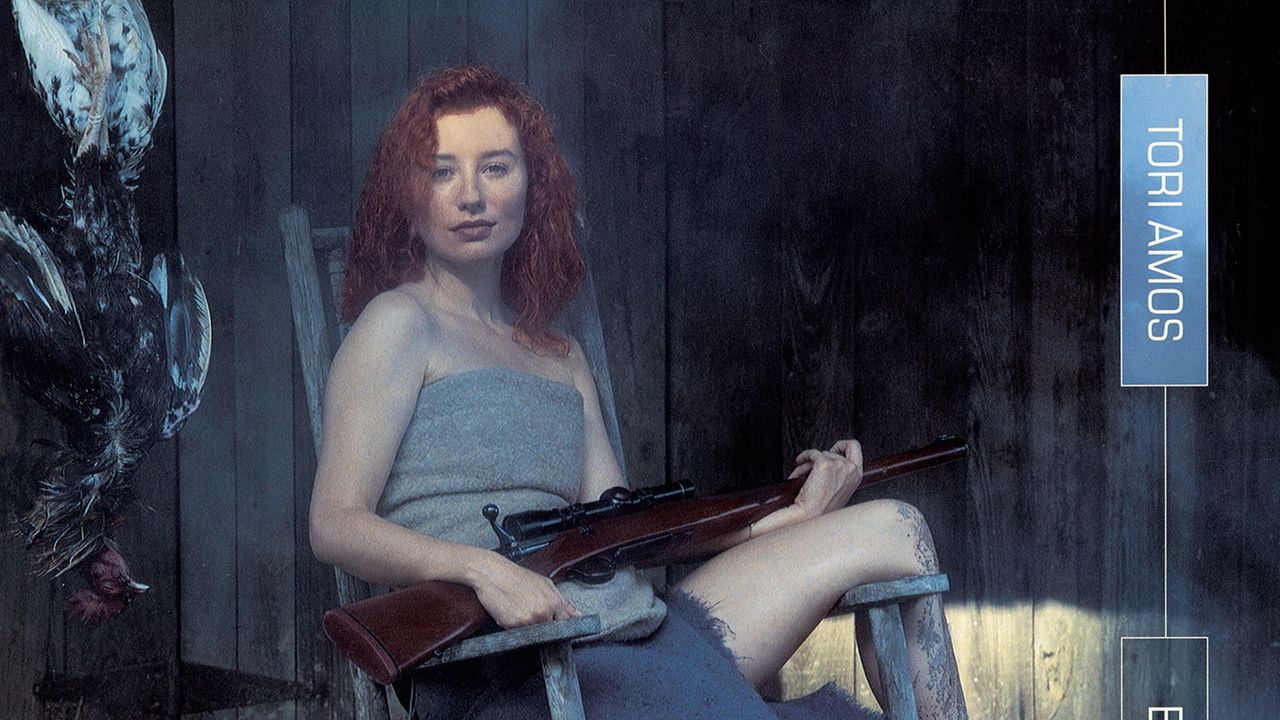In the early hours of June 23, 1993, after her husband, John Bobbitt, raped her, Lorena Bobbitt reached under the covers for his penis, grabbed it, then cut it clean off with a kitchen knife. With the severed penis in hand, she drove to a nearby field, threw it out the window, and called the police, telling them where to find it. She was jailed for “malicious wounding.”
Over 1.3 million column inches were dedicated to the subsequent trial, and for a brief period, American culture underwent a reckoning with male authority and phallic sovereignty. Tori Amos read every piece on the trial she could find. She celebrated the final verdict in Bobbitt’s trial, in 1994: not guilty by reason of temporary insanity. Amos told Hot Press soon after: “I’m mad, mad at myself to this day that I didn’t kill the man who raped me.” Her third album, 1996’s Boys for Pele, plays out the fantasy: What if she had?
Two years before, Amos had released “Me and a Gun,” the a cappella retelling of her own sexual assault that—amazingly—launched her solo career. The song mimicked the meditative cadence of psalms as Amos recounted the unholiness of the act. It reflected the emerging third wave of feminism, part of a cultural reckoning with sexual violence that had produced Tracy Chapman’s 1988 song “Behind the Wall,” Suzanne Vega’s 1992 song “Bad Wisdom,” and Hole’s “Asking for It,” in 1994. That year, when Rolling Stone asked what Amos’ fans told her when they got the chance to speak to her, she replied: “That they’ve been raped.”
In order to survive your body being stolen from you, you have to take an active role. For Amos, that meant reviewing her own capacity for violence and violation, whether toward herself or others. On the Boys for Pele cover, Amos grips the weapon she once sang about, while a barnyard cock hangs dead from the rafters and a live snake curls behind her foot. With Amos now pointing the gun herself, Boys for Pele is her visceral and symbolically rich exploration of the fantasy of violent reprisal. While her previous albums, 1992’s Little Earthquakes and 1994’s Under the Pink, were more carefully wound and filled with an almost unrealistic clarity, Boys for Pele is a bristling, terrifying, and often inhuman affront in which Amos is an unholy brat on the edge of nonexistence, singing about clit-eating chickens, lacing ratatouille with poison, and coaxing men to kill themselves.
